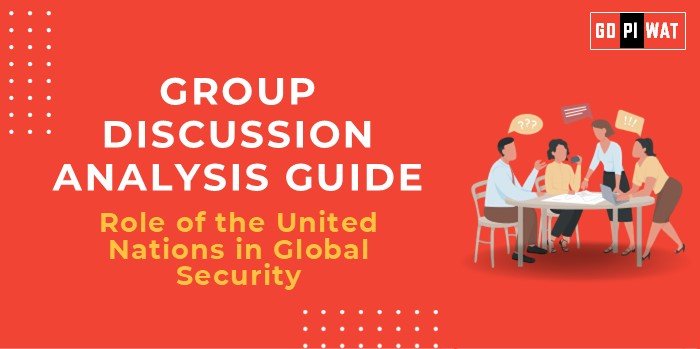🌍 Role of the United Nations in Global Security
🌐 Introduction to the United Nations and Global Security
Since its establishment post-World War II, the United Nations (UN) has aimed to maintain international peace and security, promote cooperation among nations, and protect human rights.
Founded in 1945 with 51 countries, the UN was established to prevent conflicts that devastated the world. The role of the UN in global security has evolved with changing geopolitical challenges, from peacekeeping missions to counter-terrorism initiatives.
📊 Quick Facts and Key Statistics
- 🛡️ UN Peacekeeping: Over 70 peacekeeping operations deployed since 1948, with around 87,000 personnel currently active across 12 missions.
- 📜 Security Council Resolutions: Over 2,600 resolutions passed, focusing on conflict resolution, arms control, and sanctions.
- 💰 Budget: The UN’s annual peacekeeping budget is approximately $6.5 billion, funded by member states.
- 🤝 Humanitarian Aid: In 2022, the UN provided aid to over 300 million people in 69 countries affected by conflict and disasters.
👥 Stakeholders and Their Roles
- ⚖️ UN Security Council: Decides on peacekeeping missions, sanctions, and interventions.
- 🗣️ General Assembly: Discusses global security issues and makes recommendations.
- 🕊️ UN Peacekeepers: Implement on-ground missions to maintain peace and stability.
- 🌍 Member States: Fund the UN, participate in decision-making, and support or oppose interventions.
- 🔗 International Organizations (NATO, EU, AU): Collaborate with the UN on regional stability.
🏆 Achievements and Challenges
✨ Achievements
- 🕊️ Conflict Resolution: Successfully mediated and reduced conflict in areas like Liberia, Cambodia, and the Balkans.
- 🚑 Humanitarian Relief: Played a crucial role in conflict zones, assisting refugees and internally displaced persons.
- 🩺 Global Health Security: Through the World Health Organization, addressed health crises with global security implications, like the Ebola and COVID-19 pandemics.
⚠️ Challenges
- 🛑 Veto Power Limitation: P5 (Permanent Five) members often use vetoes, hindering swift action.
- 💸 Funding and Resource Constraints: Limited funding restricts mission scope and effectiveness.
- 🌐 Emerging Threats: Adapting to new challenges like cyber threats, terrorism, and climate change’s impact on security.
💬 Structured Arguments for Discussion
✔️ Supporting Stance
“The UN’s peacekeeping missions have successfully maintained peace in many regions, reducing long-term conflict risks and improving local stability.”
❌ Opposing Stance
“The UN often fails to act promptly due to political divisions within the Security Council, especially with veto powers limiting resolutions.”
⚖️ Balanced Perspective
“While the UN has been effective in many peacekeeping roles, structural reforms are essential to overcome challenges posed by geopolitical interests.”
📚 Effective Discussion Approaches
📜 Opening Approaches
- Historical Context: “Since WWII, the UN has aimed to prevent global conflicts—a mission increasingly challenged by modern issues.”
- Statistical Impact: “With 87,000 personnel in 12 ongoing missions, the UN’s role is critical but limited by funding and political issues.”
🗣️ Counter-Argument Handling
- Example: Acknowledge the limitations of the UN in the Syrian conflict and suggest ways member states could improve collaboration.
- Solution-Oriented Rebuttal: “While veto power is a significant challenge, increasing transparency and accountability could mitigate some issues.”
🔍 Strategic Analysis of Strengths and Weaknesses
- Strengths: Extensive experience in peacekeeping, universal membership, humanitarian aid expertise.
- Weaknesses: Dependency on member states’ funding, political barriers (veto), slow response times.
- Opportunities: Rising global partnerships, potential reforms, role in climate security.
- Threats: Rising nationalism, cyber threats, climate-induced migration.
🎓 Connecting with B-School Applications
Potential projects in areas like international relations, policy analysis, and sustainable development offer real-world applications for B-school students.
💬 Sample Interview Questions
- “How can the UN improve its response to emerging global security threats?”
- “Discuss the role of veto power in the UN’s decision-making.”
💡 Insights for B-School Students: Understanding multilateral challenges, negotiation dynamics, and the need for reforms can benefit those interested in global policy roles.


